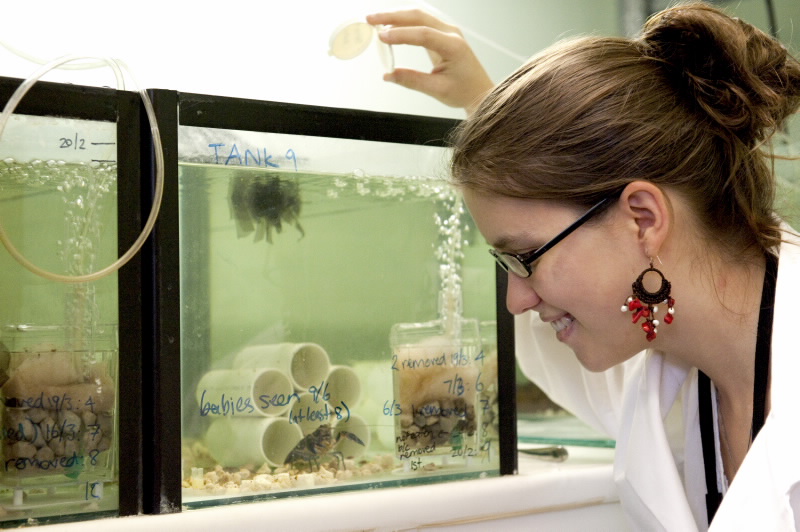Yabbies are helping ANSTO researchers find out who eats what in the Murray-Darling basin and other wetland ecosystems. Dr Debashish Mazumder and his team are using yabbies to find out how naturally-occurring radioisotopes in an animal’s food, are incorporated into its body.
 |
| By measuring how the isotope signature of the yabbies changes in response to their diet in the laboratory, scientists can better identify the components of an animal’s diet in the wild. |
Animals eat a combination of different prey items, and identifying all the components of an animal’s diet can be especially difficult in the murky waters of wetland environments.
Instead, researchers can identify predator-prey relationships by analysing the isotopic signature of different organisms in the ecosystem. The ratio of these isotopes can reveal an organism’s position in the food web and the different components of its diet.
Researchers can use isotope analysis to monitor how wetland food webs change in different environmental conditions. Understanding how food webs in the Murray-Darling basin change during periods of drought and flooding will be crucial for the future management of this threatened river system.
Different plants and animals contain unique ratios of carbon and nitrogen isotopes. When an organism eats another, some of the radioisotopes in the prey are incorporated into the body tissues of the predator.
Dr Mazumder feeds his laboratory yabbies artificial diets with known isotope ratios, including mixtures of kangaroo and lamb meat. By measuring how the isotope signature of the yabbies changes in response to their diet in the laboratory, scientists can better identify the components of an animal’s diet in the wild.
Published: 04/06/2012


